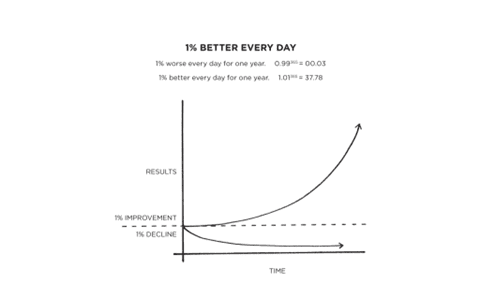In our last blog, we encouraged you to start the new year off right by setting a few financial goals for yourself. Setting personal financial goals is so important, but, just like fitness goals, they can get pushed to the back burner of life. Time moves quickly. In the blink of an eye, you have gained 5 pounds or unintentionally spent your last raise. How do we let this happen?
Well, there can be many personal reasons but, ultimately, we make excuses and fail to stay focused. Sometimes we forget, get distracted, or life just gets in the way. Regardless of the reason, a change in perspective might help us work toward our goals. Planning for your financial future is not something that can be ignored, whether you are young and getting started in your career or if you are older and approaching retirement. These are both crucial time periods in life where discretionary income might be changing, along with the need to consider changing your behavior and habits. And habits, they can be your friend and work for you, or your foe and work against you.
Financial Habits
If you have not read James Clear’s book, Atomic Habits, I encourage you to do so. He is a habit expert, and his wisdom can be applied to many areas of life, including personal finance. The premise of his book is that results have very little to do with the goals you set and nearly everything to do with the systems you put in place. He defines habits as the routines or behaviors you perform regularly- and, in many cases, automatically. Your life is essentially the sum of your habits. And your identity- who you are- emerges out of your habits. He points out that small habits ultimately make an enormous difference in whatever you are trying to accomplish over time. For example, while improving your chosen behavior by 1 percent isn’t particularly notable or even noticeable, it can be far more meaningful, especially in the long run. The difference a tiny improvement can make over time is astounding.

Habits are essentially the compound interest of self-improvement.
So, when thinking about your long-term financial goals, you need to build habits- a system- that works for you. Clear’s Four Laws of Behavior Change can be used to build positive habits. They are:
- Make it obvious
- Make it attractive
- Make it easy
- Make it satisfying
What habits or systems can you put in place that will have a positive effect on your financial outcome over time? A few that come to mind include:
- Automate your finances wherever possible.
- Direct deposit of a fixed percentage of your paycheck to a brokerage account
- Automate 401(k) contributions from your paycheck (Consider enrolling in a program to automatically increase your contribution election each year.)
- Automatic investment of monthly contributions into a mutual fund
- Automatic reinvestment of dividends
- Use an app that will automatically categorize your spending
- Establish monthly autopay on the full balance of your credit cards
- Never spend what you haven’t yet earned, also known as debt (with a few exceptions).
- Set a specific day/month on the calendar each year to meet with your wealth advisor to keep you on track.
- Change your environment to remove small distractions and barriers to your spending/savings habits. This will be different for each person. Maybe you need to limit online shopping, so you avoid social media feeds. Maybe you need to place a picture of your retirement dream on your desk. Your environment is the invisible hand that shapes human behavior.
Lifestyle Creep
The other consideration here is eliminating bad habits. Even the best budgeter and saver can have an occasional poor habit. One sneaky habit to be aware of that hits a lot of people is lifestyle creep. Lifestyle creep happens when your standard of living improves as your discretionary income rises and former luxuries now become new necessities. You have formed a habit, or two or three. Your attitude and your way of thinking changes and it becomes difficult to differentiate between wants and needs. It can start with small decisions, such as buying a drink at Starbucks every day or indulging in more expensive clothing, and unintentionally blossom into more extravagant habits.
Bottom Line
The best way to build and change your habits is to focus on your systems and who you wish to become. In the absence of will and motivation, which happens to us all at times, you fall to the level of your habits and systems.
If you have questions and would like to talk with us further, please call us at 513-271-6777. For more THOR reading, click here to go to the Blogs and Market Updates section on our website.
Follow us on social media:





